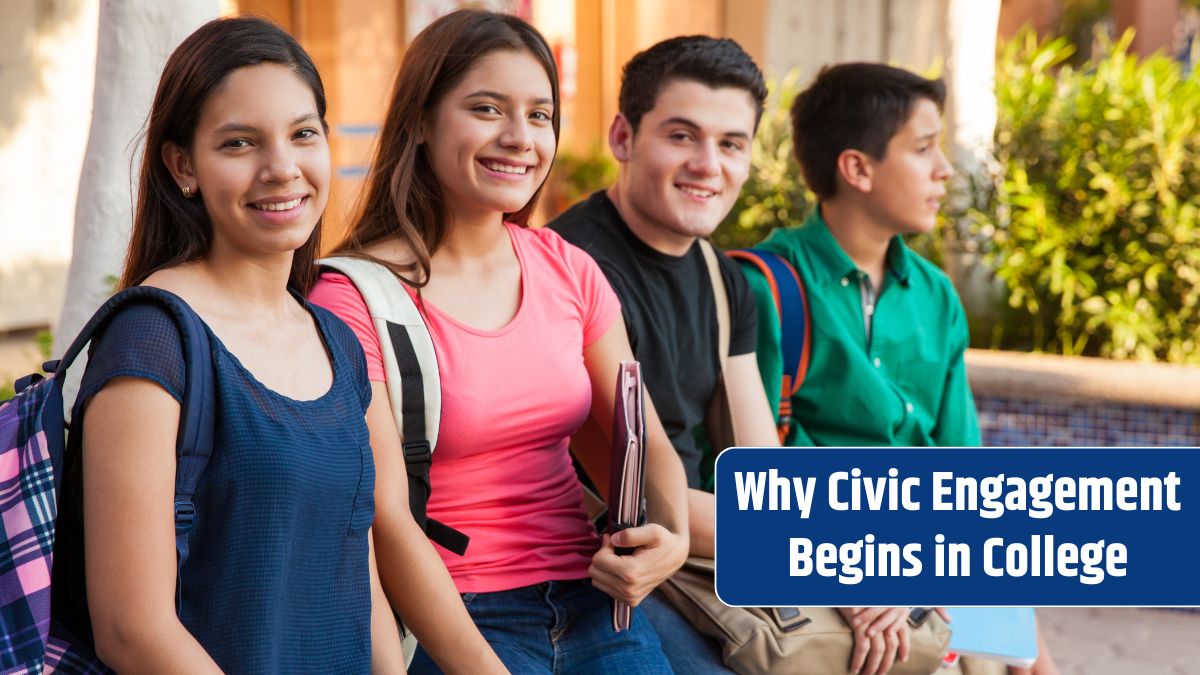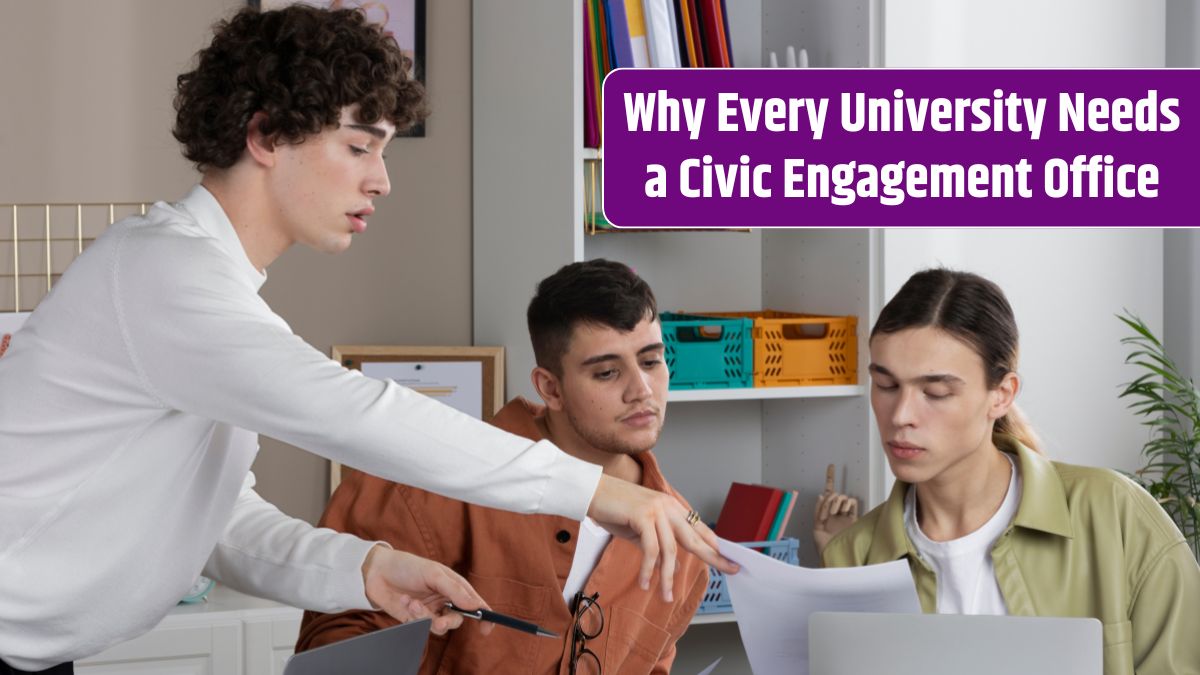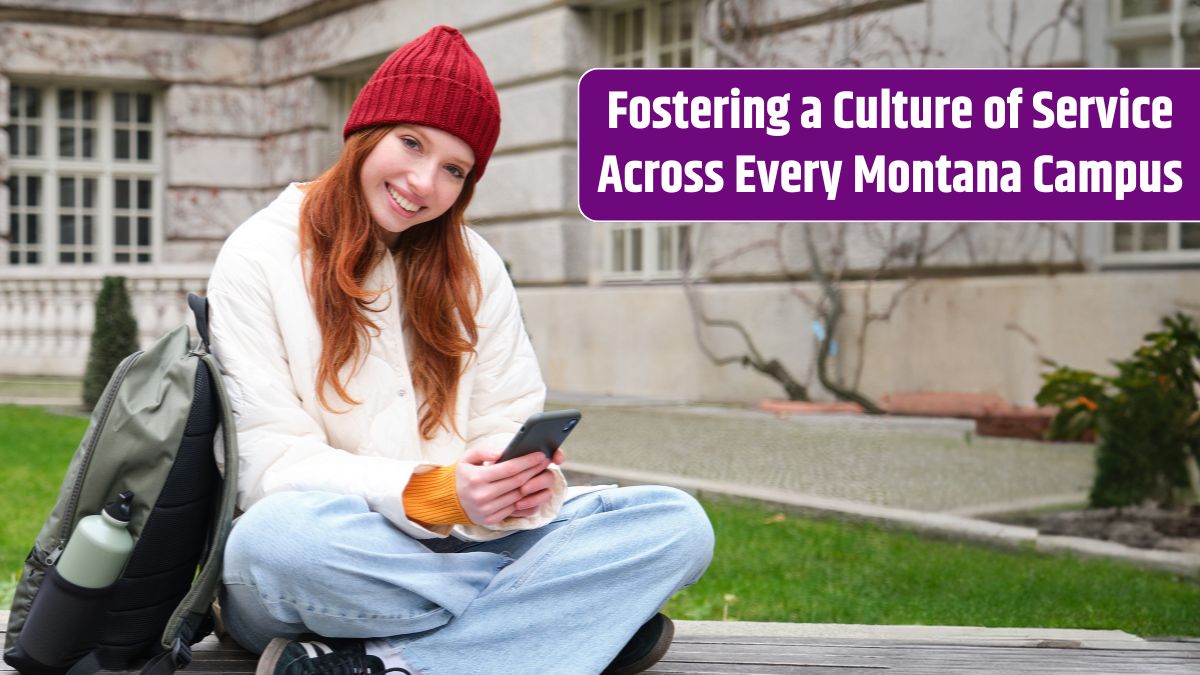Higher education is no longer just about earning degrees—it’s about shaping citizens. Colleges and universities across the country are playing a growing role in developing students not only as professionals but as civic-minded leaders ready to tackle society’s biggest challenges. Through service-learning, leadership development, community partnerships, and public engagement, today’s institutions are helping students become tomorrow’s changemakers.
Here’s how higher education is building community leaders for the future.
Table of Contents
Integrating Civic Learning into the Classroom
Many universities are embedding civic engagement into their academic programs. Known as service-learning, this approach blends traditional coursework with community involvement. For example, students might work with a local nonprofit to address food insecurity while studying public health or analyze community data in a statistics class to help local governments.
Benefits of service-learning include:
- Real-world application of academic skills
- Increased awareness of social issues
- Stronger critical thinking and problem-solving abilities
- Greater empathy and personal growth
This model ensures that students aren’t just learning about issues—they’re helping to solve them.
Leadership Development Programs
Colleges are actively creating leadership tracks, fellowships, and certificates that emphasize public service and community building. These programs train students in communication, ethics, team-building, and inclusive leadership—skills essential for leading in any sector.
Notable features often include:
- Workshops and retreats focused on civic responsibility
- Mentorship from community leaders and alumni
- Internship placements with public agencies or nonprofits
- Capstone projects addressing real local needs
Leadership development efforts prepare students to lead with purpose, whether in business, education, healthcare, or politics.
Campus Voting and Civic Participation
Higher education institutions are also at the forefront of promoting democratic engagement. Through voter registration drives, debates, and civic holidays like National Voter Registration Day, colleges are working to empower students to become active participants in democracy.
Programs like:
- ALL IN Campus Democracy Challenge
- Campus Vote Project
- Ask Every Student Initiative
…are helping schools increase turnout and teach students the value of civic duty. These initiatives not only educate students on political processes but foster a lifelong commitment to participation in public life.
Community Partnerships and Local Engagement
Strong universities don’t exist in a vacuum—they’re deeply tied to their communities. Many schools have offices of civic engagement or public service centers that build long-term partnerships with local organizations, governments, and schools.
Examples include:
- Urban universities offering after-school tutoring in nearby neighborhoods
- Rural colleges working on local sustainability projects
- Students conducting public health surveys to support county clinics
These collaborations make communities stronger while teaching students what effective, equitable service looks like.
Alumni Leading with Impact
The result of this campus-to-community pipeline? Thousands of graduates entering public service, launching nonprofits, running for office, and leading social impact projects across the country. Universities that invest in civic education are producing alumni who stay involved long after graduation.
Fields where graduates make a difference:
- Social work and counseling
- Environmental justice and urban planning
- Education and youth development
- Law and public policy
- Health and human services
Why It Matters Now More Than Ever
At a time when communities face complex social, economic, and environmental challenges, cultivating engaged, thoughtful leaders has never been more critical. Colleges and universities serve as training grounds for the next generation of changemakers, offering both the knowledge and the opportunities to make a difference.
Students who graduate with a sense of civic responsibility—and the skills to act—are the key to building more resilient, inclusive communities.
FAQs:
What is civic engagement in higher education?
It’s the process of connecting learning with public action—through volunteering, service-learning, voting, and working on real community issues.
How can I get involved in civic leadership in college?
Look for your school’s office of civic engagement, student government, leadership programs, or public service fellowships.
Does civic involvement help with career readiness?
Absolutely. Skills like communication, collaboration, and ethical decision-making are highly valued in every field.
























